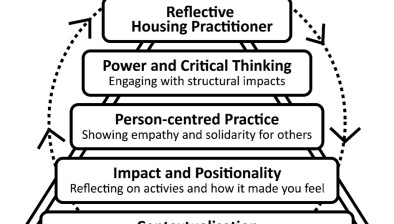David Gibb: Why the Housing Bill doesn’t sound the death knell for the PRS

David Gibb
David Gibb, operations director at Dwello, takes a positive look at the Housing (Scotland) Bill.
In the long, drawn-out process of the Housing Bill (Scotland) progressing through the Scottish Parliament, much of the input from the sector has been focused on the negative impacts of the legislation for landlords and property investors.
While no-doubt some will be upset about the proposed CPI + 1%, with a maximum increase of 6%, that councils can apply to rent increases, the picture isn’t as bleak as some in the market would have you believe.
Despite the challenges the sector undoubtedly faces, there are certainly reasons for landlords and property investors, in particular, to be optimistic.
For one, mortgage rates appear to be beyond their peak and set to drop in the coming months and years. The lowest buy-to-let (BTL) mortgage rates are now available at a fraction of domestic mortgage rates albeit with a lower loan to value ratio. That has driven new landlords into the space, with UK Finance recently reporting a 39% rise in lending to new landlords.
Despite advantageous BTL mortgage rates, the Scottish Additional Dwellings Supplement tax at 8% is more punitive than the English system and raises the barrier to entry for casual investors – i.e. those with one or two properties as a retirement nest egg. However, there is still value to be had for professional landlords who may purchase whole portfolios rather than individual properties.
One group that may be adversely affected is the amateur or ‘accidental’ landlord. It’s been widely reported that there has been an exodus of accidental landlords from the sector and the rise of professional landlords, who are building portfolios as income replacement businesses.
That may sound negative, but it can have a positive impact for tenants. Having a more professional, engaged and motivated landlord who understands the rules and regulations, and complies with them through a professional agent, can raise the overall standards in Scotland’s private rented sector.
Prospective professional landlords should be warned, though, that landlording isn’t a passive investment. In fact, it’s a highly involved enterprise. Whereas investment in a stocks and shares ISA may generate around a 4% return with minimal input, a property requires ongoing management and upkeep, and is much more tightly regulated.
For example, should a tenant’s boiler break, it’s the landlord’s responsibility to pay for repairs or replacement. They also have to comply with safety certification, deposit protection regulations, GDPR, anti-money laundering, and myriad other legislative requirements.
Even with strict regulations and ongoing management of a property portfolio, investing in the sector is still an attractive proposition.
Scottish rent cap legislation, which limits annual increases in rents at the consumer price index+1%, means that before accounting for the increasing asset value of a property (where Scotland’s growth is outstripping the rest of the UK), on the current trajectory, investors can expect returns in excess of the leading ISA rates.
Returns, however, are dependent on properties being occupied, and one of the key risks that landlords are concerned about are void periods. They needn’t be.
Demand for private rented properties in Scotland, especially in the big cities, is outpacing supply. Since Dwello opened its doors in May this year, the average void time between taking on a property, listing it, managing viewers, and a tenant moving in, is only 18 days. In fact, in July alone, we received 1,458 enquiries for the 30 properties we marketed that month.
So, despite the doom-mongers’ predictions about the impact of the Housing Bill (Scotland), property is still a safe and profitable investment. Just be prepared to put the work in.







